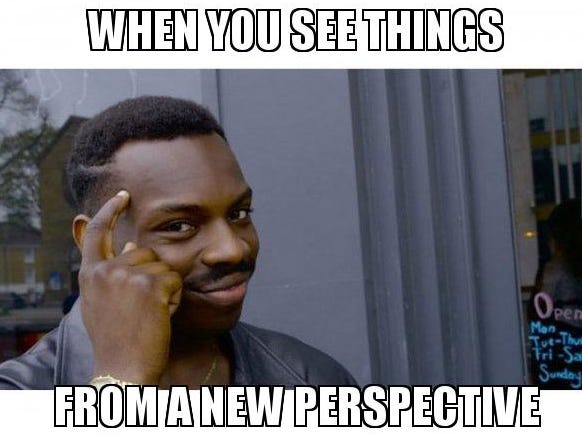Steve Jobs had a strong distaste for consultants, a sentiment he expressed during a lecture he delivered in 1992 as part of the MIT Sloan Distinguished Speaker Series.
The entire 72-minute talk, available on YouTube through MIT Video Productions, touches upon various topics, including Jobs' reflections on being ousted from Apple, the hurdles involved in portable technology development, and his personal approach to management.
If you are a Jobs fan, you can watch the entire talk, but the part I am going to focus on today is this 2-minute extract.
Take a seat, and watch it:
Oh, Steve Jobs, always known for speaking his mind!
He didn't hold back when it came to his thoughts on consultants either. During this talk, he even put the audience on the spot, asking about their backgrounds. Surprise, surprise, some of them were consultants themselves.
According to Jobs, consultants are missing out on a crucial part of professional growth within a company: learning from mistakes. See, they come in, give their fancy advice, and then fly away like superheroes, never sticking around to see the outcome of their ideas. They only see a tiny piece of the puzzle.
He believes that without owning something for a good chunk of time, like a few years, you can't fully grasp the lessons that come with taking responsibility for your recommendations. It's like missing out on the scars and bruises that come from making mistakes and learning how to bounce back. You're only getting a shallow glimpse of the whole process.
If you watched the 2-minute video until the end, you could see Jobs using a clever way of describing the traditional consulting process, comparing it to a picture of a banana. Yeah, the picture may give you an accurate look at the fruit - Jobs says - but you can't really sink your teeth into it and taste its juiciness. It's like having a wall covered with pictures of bananas, peaches, and grapes, saying, "Hey, look at all the fruits I've worked with!" But deep down, you know you haven't really experienced the true flavor.
In Jobs' eyes, consultants may get a broad view of companies, however they miss out on the three-dimensional experience of truly immersing themselves and learning from the full journey.
They're like tourists taking snapshots, but they never get to savor the real deal.
Wait a minute, could Steve Jobs actually be wrong about something?
So, here's the deal: the whole idea that consulting firms can only do the two-dimensional stuff but cannot work three-dimensional is pretty outdated. This video is from 1992, after all!
These days, you've got strategy firms diving deep into technology services, and tech consulting firms trying to get into the strategy game. It's all about being a one-stop shop.
I have personally seen this shift happening over the years.
Clients are no more satisfied with just fancy PowerPoint slides presented by a bunch of smart people. They want real, tangible stuff to go along with those flashy presentations. They're looking for results, not just talk.
In recent years, McKinsey, the leading management consulting firm, has been actively expanding its technology consulting services. While McKinsey has traditionally been known for its expertise in strategy and management consulting, they have recognized the increasing importance of technology in driving business transformation and have made strategic moves to strengthen their technology capabilities.
Deloitte, one of the "Big Four" accounting and consulting firms, has been actively broadening its service offerings beyond traditional accounting and auditing. They have heavily invested in building their consulting capabilities, including strategy, operations, technology, and human capital services.
Accenture, a multinational consulting firm traditionally known for its expertise in management consulting and technology services, has, in recent years, made significant strides in expanding their capabilities by acquiring design agencies, digital marketing firms, and creative consultancies.
Less and less consultants come in, tell you what you should do and then run the other side. Consulting firms want to stick around to see those strategies through!
Now, companies still hire the big guns like McKinsey just to draw their business strategies. Why? Well, it's like an executive's insurance policy. You've probably heard the saying, "Nobody ever got fired for hiring McKinsey." That reputation still holds true.
But even when focusing purely on dictating business strategy, let's not dismiss the consulting career just because it focuses on a particular slice of the corporate pie. Complaining about strategy consultants being limited in their views is like griping about a sales department for just selling and not delivering the goods. They've got their own role to play in driving success!
Consultants know a little about a lot. So what?
In the second part of the video, Steve Jobs talks about how consultants lack depth in their skills. This is the banana analogy I referred to earlier.
According to Jobs, consultants might have experience with bananas, peaches, and grapes, but they never really got to taste those fruits for real.
Now, there are different ways to approach the consulting gig.
One way is to develop horizontal skills that can be applied to various industries. You know, skills that benefit from cross-pollination, where you can spot problems and solutions that work across different fields.
On the other hand, you can specialize in a specific industry like Telco, Retail, or Banking. By going vertical, you dive deep into that industry and become a real expert. The more specialized knowledge you have, the more valuable you become in that niche.
It’s the generalists versus specialists debate. Consulting firms usually start off by throwing their junior folks into different projects across different industries. It's like a tasting menu to get a sense of what each industry is all about. As these consultants grow and mature, they can start to figure out what they really enjoy and where their skills shine the brightest.
But here's the thing: businesses need both species!
The consulting world, and therefore their client companies, needs a mix of generalists and specialists. They need people that have seen (even if only on a photograph) some grapes, a few bananas and a handful of peaches, and they need these people to work together with those who’ve been eating bananas all their lives!
To be fair to Steve Jobs, I suspect that, later in life, he changed his views on consulting. I think this - or perhaps I should say “I know this” - because Apple was one of the largest clients for a couple of firms I worked for 😁, and we even had competitors there.
We know that organizations, including Apple, love bringing consultants on board. Why then? Without going too much la-la-land, I can think of a few reasons:
Fresh perspective: Consultants come from the outside world, free from all the internal drama and politics. They bring a fresh set of eyes and a clear head to objectively assess your situation. They'll challenge your assumptions, uncover hidden opportunities, and find those pesky blind spots you never knew existed. Since they hop from one gig to another, they need to get up to speed fast. That means they're experts at diving into new environments, understanding challenges, and dishing out practical advice.
Scalability and flexibility: Think of consultants as your secret weapon when things get hectic. They're like a temporary workforce that can swoop in whenever you need an extra hand. Whether it's a crazy busy period, a big strategic project, or organizational changes, these guys are there to save the day. Plus, you can scale their services up or down as needed, so it's cost-effective and efficient.
Speed and efficiency: Time is money, and consultants know how to deliver results at warp speed. They've got the experience and skills to make quick decisions, implement best practices, and streamline operations. When you're in a time crunch or need to transform your business in a flash, these speed demons have your back.
One of my former bosses once confessed to me “I’ve sold this project on the blood of the consultants delivering it”. Not fun for them, but the client got a great deal.
Knowledge transfer and skill development: When you bring in consultants, it's not just a one-way street. They'll work hand in hand with your team, sharing their expertise and showing you the ropes. They'll help you tackle immediate challenges while building up your in-house capabilities for the long haul. Yeah, consultants might not have the same long-term experience as your internal crew, but they've got specialized skills in specific areas. They've honed their expertise, and they're ready to bring it to the table. When you're facing a particular challenge or need some extra firepower, these specialists are there to give you that extra boost. It's like having a secret weapon in your corner.
There’s more I could talk about, but I’m done cheerleading for today. Oh, and clearly it’s not all roses when it comes to paying consultants a lot of money, but we’ll make that case another day…
Of course, not all consultants are cut from the same cloth
Keep in mind that not all consultants are created equal.
Their effectiveness depends on their expertise, how well their recommendations align with the client’s goals, whether clients actually put their advice into action and whether a consulting firm is responsible to implement the strategy they advice about.
External consultants may not have the same depth as your internal employees, but they offer a whole bunch of unique value. Their diverse exposure, rapid learning, objective assessment, and specialized expertise bring a fresh twist to the game.
Consulting companies invest billions of dollars over time in becoming long-term strategic partners with client organizations. As these relationships become more intertwined, the success of the client becomes the success of the consulting firm.
Contrary to what most people seem to think, including the Steve Jobs of 1992, consulting companies these days have more skin in the game than ever before.














